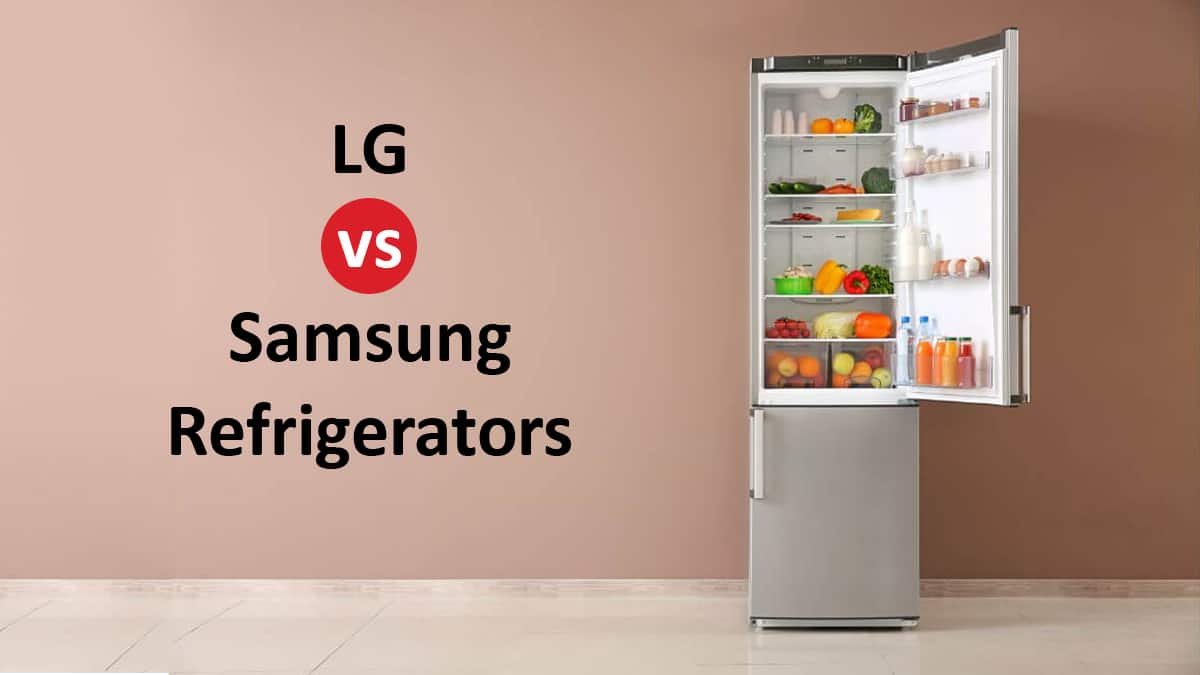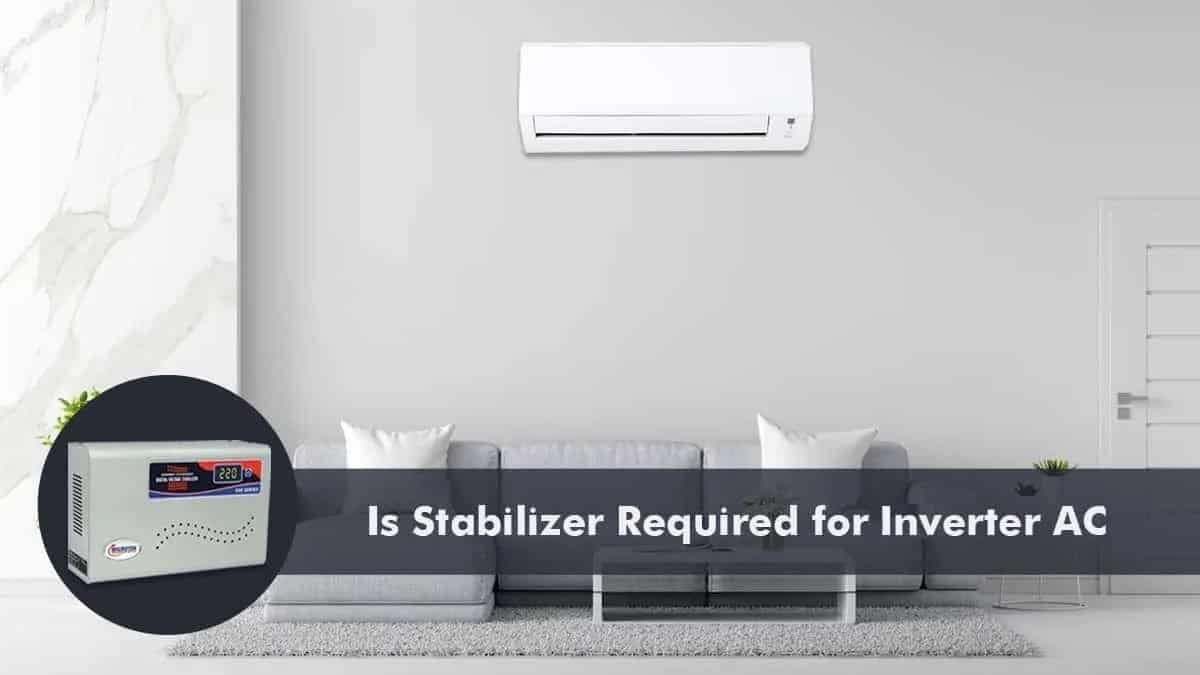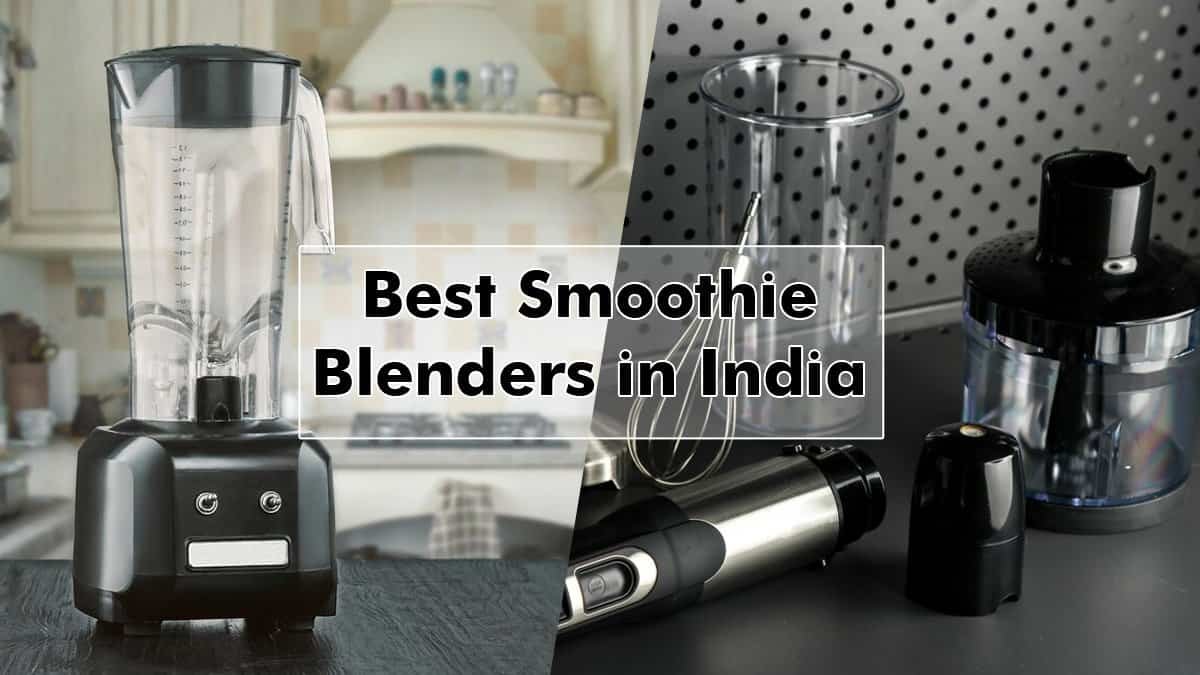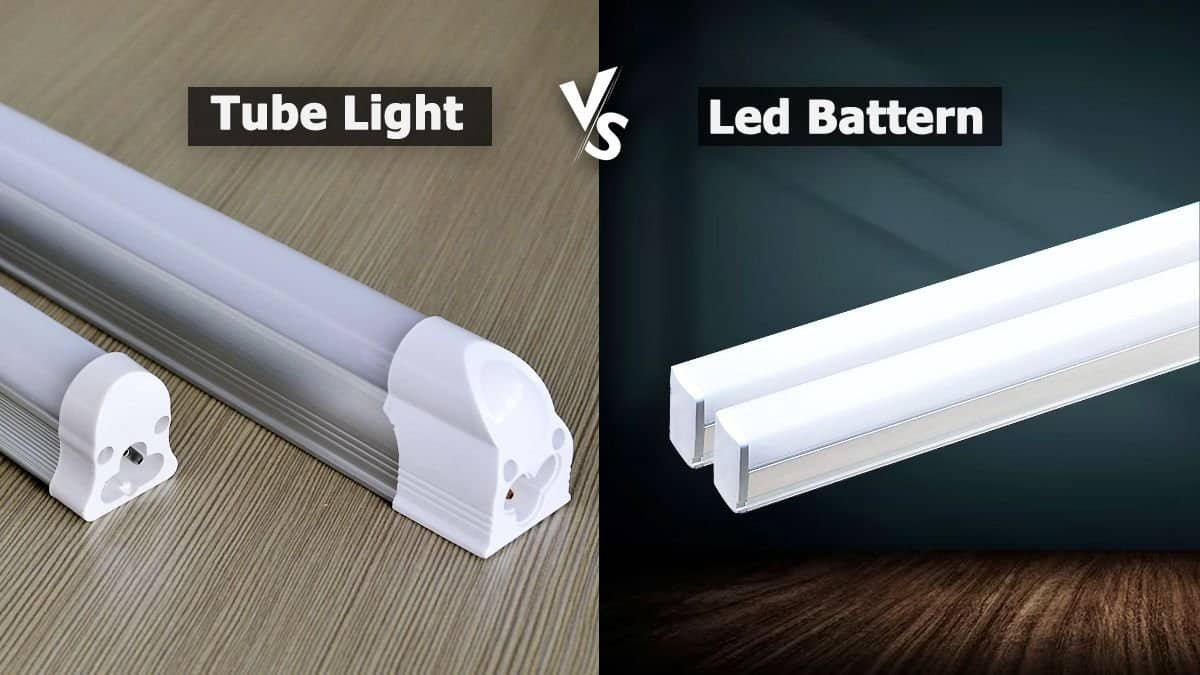In the world of home appliances, the comparison between LG and Samsung Refrigerators is always a hot topic. As we navigate through 2025, this intense competition continues to heat up. Both brands consistently innovate and upgrade their refrigerator models to capture a larger market share.
However, most consumers are left wondering, “Who is the ultimate winner in 2025?” Selecting a new refrigerator often narrows down to these two industry leaders, as they are globally acknowledged for their top-notch quality, advanced features, and sleek designs. Nevertheless, a thorough analysis of their latest offerings is essential to crown the true champion. This detailed comparison of LG vs Samsung Refrigerators will meticulously examine every aspect, from cooling efficiency and storage flexibility to energy consumption and smart capabilities, empowering you to make a well-informed decision.
Your journey towards choosing the ideal refrigerator in India that aligns with your needs and budget begins here. Brace yourself for the cooling showdown of the year!
Table of Contents
The Design Competition

Regarding design, both LG and Samsung refrigerators bring sophistication and style to your India kitchen, seamlessly combining functionality with elegance. A key similarity lies in the freezer-to-fridge ratio, which remains consistent across most models, albeit with slight variations.
Both brands feature base stand drawers in their single-door refrigerators, providing convenient storage for items like onions and potatoes. However, Samsung raises the bar with newer single-door models, incorporating a digital display on the door for easy mode changes, defrosting, and power cooling activation.
Samsung adopts a user-friendly approach in convertible refrigerators by placing a digital control panel on the door. In contrast, LG situates the controls behind the shelves. While this doesn’t compromise functionality, accessing LG’s controls may be slightly more challenging when the refrigerator is fully stocked. These design differences between LG and Samsung add depth to the cooling contest, catering to diverse preferences and lifestyles.
The Compressor Technology

Compressor technology is crucial to refrigerator performance, impacting energy efficiency, noise levels, and overall functionality.
Samsung employs Digital Inverter Compressors in their refrigerators, equipped with advanced sensors monitoring nine variables, including temperature and door openings. These sensors adjust the compressor’s speed across seven different levels (1100 to 4300 RPM), enhancing efficiency and performance.
You’ll find the Smart Inverter Compressor in LG’s mid-range refrigerators, with five operating speeds (1200 to 4500 RPM). High-end LG models feature the Inverter Linear Compressor (ILC), using a unique piston and magnet setup for linear compression. LG claims this results in superior cooling, energy savings, and reduced noise levels.
It’s worth noting that LG faced a class-action lawsuit related to ILC compressor failures, mainly around 2017. However, LG has since addressed these issues in their later production.
Consider factors like energy efficiency, noise, and durability when comparing LG and Samsung compressor technologies. Samsung’s Digital Inverter Compressors offer sensor-driven precision, while LG’s Smart Inverter and ILC cater to various needs. Your choice will hinge on your specific priorities: cooling performance, energy conservation, or noise reduction.
Storage Option: Fresh Food Storage

Fresh food storage is a pivotal aspect of refrigerator performance, directly affecting the longevity and quality of your groceries. Let’s examine the capabilities of LG and Samsung in this crucial area.
LG provides refrigerators with innovative features such as Moist N Fresh crispers. These crispers feature a lattice-shaped embossing on the lid, enabling excess moisture from fresh fruits and vegetables to evaporate and condense on the lattice. When humidity decreases, the moisture is reintroduced into the crisper, effectively extending the freshness of your food. This unique design is a significant advantage for LG.
On the other hand, while Samsung’s refrigerators may lack this specific feature, they shine with their 5-in-1 convertible models. These refrigerators utilise dual evaporators, ensuring that the air circulating in the fridge remains separate from the freezer. This segregation results in the fridge compartment maintaining 70% higher humidity, a considerable advantage for keeping fruits and vegetables fresher for an extended period.
In evaluating fresh food storage, it is essential to consider the design of shelves, drawers, and temperature control. Both LG and Samsung offer a variety of options, allowing you to select the configuration that best suits your needs. LG’s Moist N Fresh crispers and Samsung’s dual evaporators represent two distinct approaches to achieving optimal food preservation. Your decision will ultimately hinge on your preference for features like moisture control and humidity levels.
The Convertibility Variable

Convertible refrigerators offer a dynamic approach to address your evolving storage needs. Let’s explore this concept and compare LG and Samsung models.
These appliances empower you to customise compartment temperatures, even converting a freezer into additional fridge space, providing unmatched versatility.
Samsung excels in this realm, offering 5-in-1 convertible refrigerators that allow you to place the fridge and freezer on stand-by, adapting to your requirements. Samsung provides diverse formats, including double-door and side-by-side models, catering to varied preferences.
In contrast, LG primarily focuses on freezer-to-fridge conversion in their convertible refrigerators. However, it’s important to note that LG doesn’t enable individual stand-by modes for the fridge or freezer, and their side-by-side models lack convertible options.
Convertible refrigerators offer remarkable convenience and adaptability, whether you need extra fridge room for a special occasion or seek energy savings by deactivating unused sections. Samsung’s 5-in-1 convertible models offer a broader range of options, allowing you to tailor your refrigerator precisely to your needs.
The Cooling System

LG and Samsung refrigerators excel in maintaining temperatures and preserving food freshness.
LG utilises a door and multi-flow cooling system, strategically placing vents to ensure uniform temperature distribution.
Samsung’s efficient cooling system, especially in their convertible refrigerators, incorporates a twin-cooling system that increases humidity by 70% in the fridge, enhancing food freshness.
Samsung’s refrigerators with digital displays include power-cool and freeze buttons for rapid cooling and ice production, even in single-door models.
While LG offers similar functions like express freeze, they are typically available in side-by-side and high-end models.
In summary, both brands boast efficient cooling systems crucial for food preservation. Still, specific features like rapid cooling may vary between models, providing a range of options for consumers.
The Inverter Connection

Inverter technology in refrigerators is essential for regions with frequent power cuts, ensuring uninterrupted operation and energy efficiency. Both LG and Samsung offer inverter-compatible refrigerators for continuous functionality during outages.
LG takes it a step further by providing select refrigerators that can run on solar energy, contributing to eco-friendliness and sustainability. This innovation aligns with the growing focus on renewable energy sources.
Overall, LG and Samsung recognise the significance of inverter technology, delivering dependable performance during power disruptions. LG’s commitment to solar-powered refrigerators adds an extra layer of energy efficiency and eco-consciousness, catering to diverse consumer preferences.
Stabiliser-Free Operations

Stabiliser-free operations in refrigerators are vital due to common voltage fluctuations. Let’s explore the need for stabilisers, compare LG and Samsung models, and highlight their voltage ranges and protection.
Voltage fluctuations are common in India, necessitating stabilisers. However, modern refrigerators claim to have built-in stabilisers, eliminating the need for external ones. It’s crucial to consider their operating voltage range, impacting their performance.
LG’s refrigerators can withstand voltage fluctuations from 100 to 310 volts in controlled conditions, ensuring robust protection. Samsung’s stabiliser-free operations cover a range of 100 to 300 volts, slightly narrower than LG’s but not significantly affecting your decision.
Both brands prioritise stabiliser-free operations to safeguard refrigerators against voltage fluctuations, ensuring consistent performance. Your choice should align with your location’s voltage stability.
The Price

LG and Samsung refrigerator prices vary based on features and capacity. While direct comparisons are challenging due to this variability, here are some general insights:
In most cases, LG and Samsung offer competitive pricing for single-door and double-door refrigerators, with little price difference between the brands. However, specific model features should guide your value assessment.
Both brands provide various refrigerator models, catering to diverse budgets and needs, from basic to high-end options. When comparing models within each brand, consider features, capacity, and energy efficiency to determine the best value for your requirements.
Ultimately, your choice between LG and Samsung should consider initial costs and long-term factors such as energy efficiency and durability, ensuring the best value for your investment.
Top LG Refrigerators
LG 185 L 5 Star Inverter Direct-Cool Single Door Refrigerator (GL-D201APZU, Shiny Steel, Base stand with drawer)
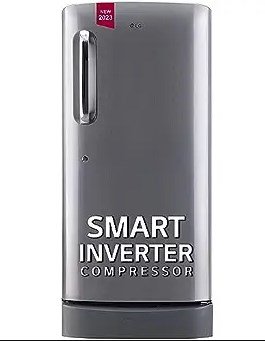
LG 246 L 3 Star Frost-Free Smart Inverter Double Door Refrigerator (GL-S262SPZX, Shiny Steel, Convertible, Gross Volume- 263 L)

LG 398 L 2 Star Frost-Free Smart Inverter Double Door Refrigerator (GL-N422SDSY, Dazzle Steel, Express Freeze)
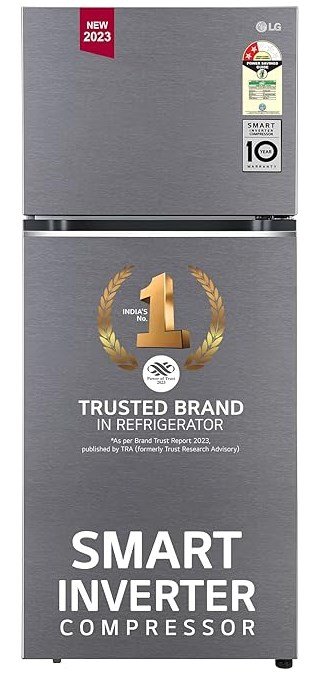
LG 506 L 1 Star Frost Free Inverter Wi-Fi Double Door Refrigerator (2023 Model, GN-H702HLHM, Platinum Silver3, With Hygiene Fresh & Door Cooling)

LG 655 L Frost-Free Inverter Side-By-Side Refrigerator (2023 Model, GL-B257HDSY, Dazzle Steel, Express Freeze | Multi Air-Flow)
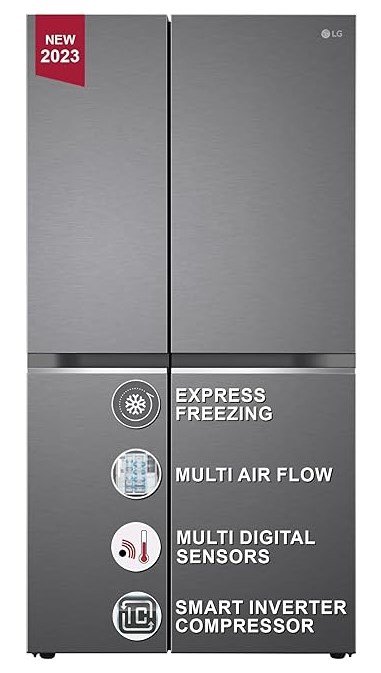
Top Samsung Refrigerators
Samsung 189L 5 Star Inverter Direct-Cool Single Door Refrigerator (RR21C2H25RZ/HL,Midnight Blossom Red) Base Stand Drawer 2023 Model
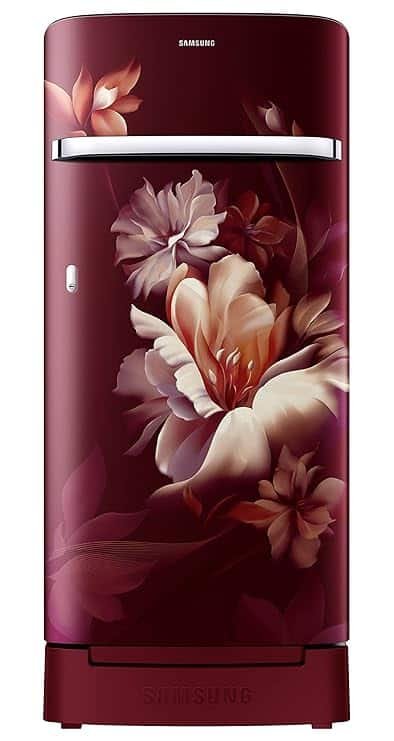
Samsung 246L 3 Star Inverter Direct-Cool Single Door Refrigerator (RR26C3893CR/HL,Camellia Purple) Base Stand Drawer 2023 Model

Samsung 236L 2 Star Inverter Frost-Free Convertible 3 In 1 Double Door Refrigerator (RT28C3732S8/HL,Elegant Inox 2023 Model)
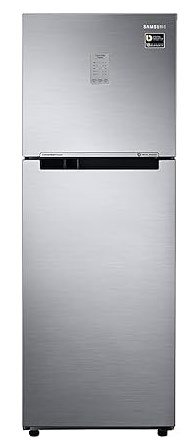
Samsung 580 L Frost Free Inverter Triple French Door Refrigerator (RF57A5032SL/TL, Real Stainless, Convertible)
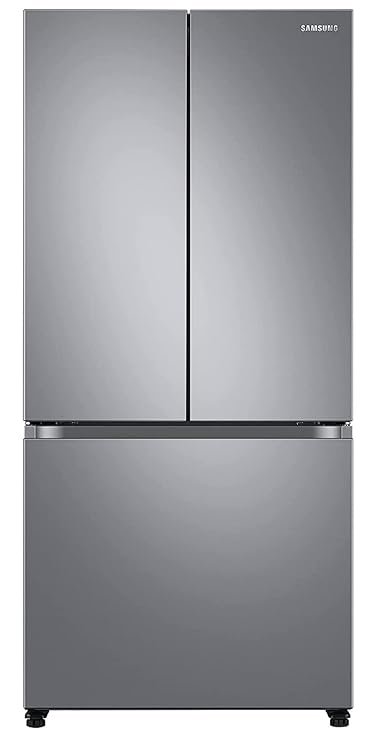
Samsung 653 L Frost Free Convertible 5In1, Digital Inverter Wi-Fi Enabled Side by Side Refrigerator (RS76CG8003S9HL, Refined Inox, 2023 Model)
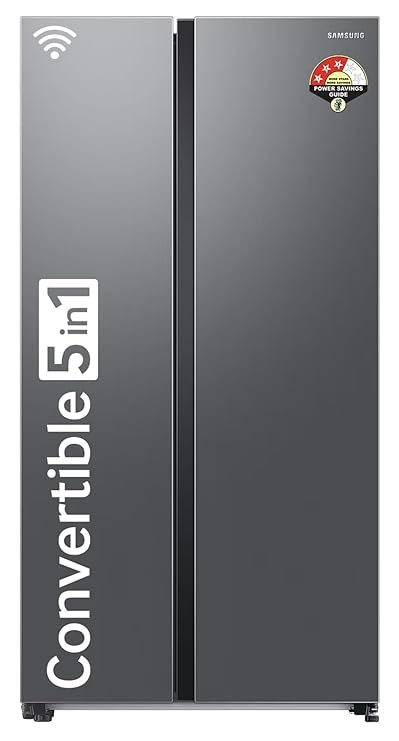
Read More
- Difference Between Convertible and Non-Convertible Refrigerator
- Direct Cool Vs Frost Free Refrigerator: Which is Better?
- Bottom Mount Refrigerator – Pros and Cons
Conclusion
In this comprehensive LG vs Samsung refrigerator comparison, we’ve covered crucial aspects for informed decision-making. Both brands excel in various areas, so aligning your choice with your specific needs is vital. LG shines with energy efficiency, solar-powered options, and unique designs, while Samsung impresses with 5-in-1 convertibility, robust cooling, and user-friendly features. Consider factors like design, technology, fresh food storage, cooling, inverter, stabiliser-free operation, and price. Explore specific models to match your unique requirements for long-term satisfaction. Feel free to seek further guidance by commenting – we’re here to help.
FAQs
What are the key factors to consider when choosing between LG vs Samsung refrigerators?
When deciding between LG and Samsung refrigerators, it’s crucial to consider various factors such as design, compressor technology, fresh food storage options, convertibility, cooling system efficiency, inverter connections, stabiliser-free operations, and price.
Each brand offers unique features and advantages in these areas, so your choice should align with your specific preferences and requirements. For details, refer to the blog post mentioned above.
How do LG and Samsung refrigerators address the issue of voltage fluctuations?
In regions with voltage fluctuations, like India, both LG and Samsung offer stabiliser-free operations. LG refrigerators are designed to withstand fluctuations within 100-310 volts.
Samsung refrigerators have a similar feature with a range of 100-300 volts. These stabiliser-free operations ensure the refrigerator functions smoothly, even during power fluctuations. For details, refer to the blog post mentioned above.
What are the key differences in the cooling systems used by LG and Samsung refrigerators?
Both LG and Samsung incorporate efficient cooling systems in their refrigerators. LG utilises door cooling and multi-flow cooling systems to ensure uniform temperature distribution. Samsung employs a twin-cooling system in their convertible models, which increases fridge humidity by 70%.
Additionally, Samsung’s refrigerators with digital displays have power-cool and freeze functions for quick cooling and ice-making. For details, refer to the blog post mentioned above.
How can I ensure the refrigerator I choose meets my long-term needs?
Consider factors beyond the initial purchase price to ensure your chosen refrigerator serves you well in the long run. Evaluate energy efficiency to save on running costs, assess durability and reliability, and check if the design and features align with your lifestyle.
Additionally, read user reviews and seek recommendations to gauge real-world performance and satisfaction. Making an informed choice based on these considerations will help you enjoy your refrigerator for years.
